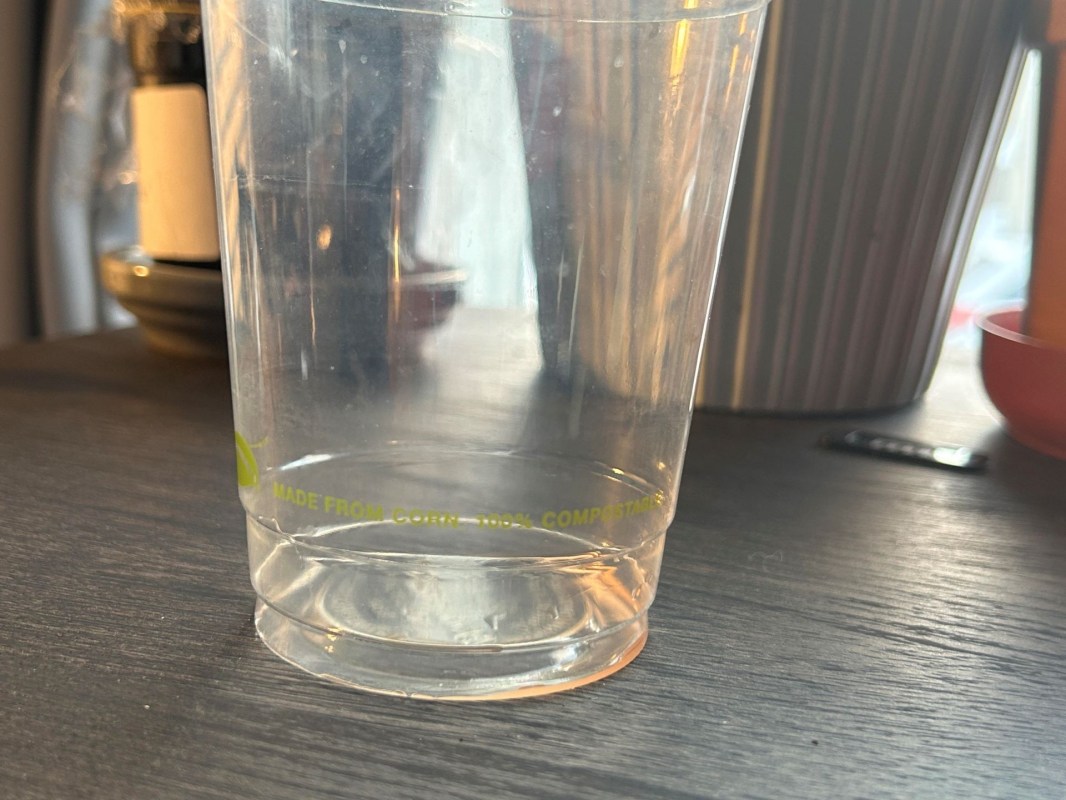A recent question in the r/ZeroWaste subreddit prompted a lively discussion about the nuances of composting and the benefits of different materials for drinking glasses.
The Redditor's question centers around compostable plastic, a type of plastic that is meant to break down in a compost bin with ordinary food waste. Most plastics take centuries to break down under normal circumstances, so it simply stays in the environment or in landfills. But compostable or biodegradable plastic is supposed to break down much more quickly.
Unfortunately, according to a study published in Frontiers in Sustainability, that's not always how it works: Only 34% of the "biodegradable" items tested actually broke down in home compost bins.
The Redditor's confusion around the topic is understandable.
"Made from Corn, 100% Compostable," they write, quoting the information printed on the cup. "I saved this from a dinner party yesterday, and I'm wondering whether I can put it in my compost bin. It looks too good to be true to me…"
Commenters jumped in to explain.
"Compostable, yes. In your backyard bin, probably not," says one.
Another user goes into greater detail. "Compost nerd checking in. Industrial composting facilities are designed to turn over the compost and finish it at a regular rate. Some stuff takes a little bit longer but for the most part, everything kind of takes the same amount of time if you mix it all together right. These things don't take forever … Probably closer to 12 months at an industrial facility."
The original poster was disappointed but decided to go ahead with their experiment.
"I might toss it in anyway," they write, "since we don't have any industrial compost facility around here."
More reliable compostable plastic would reduce the need for garbage collection and give home gardens a boost, while also reducing plastic waste and pollution. But for now, many compostable options are causing more trouble than they're worth.
As the original poster points out, "The bottom of the cup does say 'do not mix with other recyclable plastics.'"
That's because these plastics can't always be recycled by the same processes as one another. More development will be needed to make compostable plastic part of the mainstream.
Join our free newsletter for easy tips to save more, waste less, and help yourself while helping the planet.









